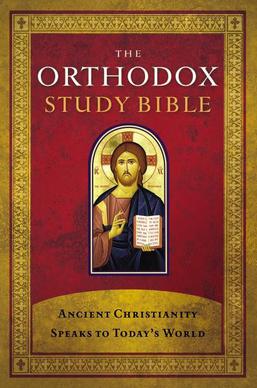This is a short introduction to the Orthodox view of the Bible. Orthodoxy here refers to the Eastern Orthodox churches. The Greek Orthodox Church and the Russian Orthodox Church are the two most prominent. The author is a member of the Orthodox Church in America (OCA). To a Protestant or secular Western outsider, many Orthodox practices look broadly similar to those of the Catholic Church.
John Peck begins by arguing that the Bible is a product of the Church, rather
than the other way around. The New Testament is a codification of Church
beliefs and practices which existed already before the “canon” was officially
decided upon. Protestants usually believe the opposite. (An Orthodox believer I
met a few years ago actually said: “The Protestants seem to think that the
Bible just fell from the sky, in French leather binding”!)
As for the Old Testament, the Orthodox Church regards the Greek translation,
the Septuagint, as the correct version, since it was used by Jesus and the
apostles. Since the Church existed before the Bible (or at least before the
NT), it can only be interpreted by the Church, more specifically by appeals to
the Church Fathers and the ecumenical councils.
Peck further argues that the Bible has four different levels of meaning: the
literal sense, the typological sense, the moral sense and the eschatological
sense. Finally, he emphasizes the need to participate in the Orthodox Church
liturgy, since the way the Scripture is used in it points towards the correct
interpretation and also the correct “feel” or “attitude” towards things
Biblical.
To sum up, the individual believer can't interpret the Bible for himself, nor
is there a “plain” meaning in the Scriptures obvious to everyone (at least not
in the Protestant sense). The Bible is to be interpreted through Church
tradition, and can ultimately only be approached through participation in the
Church's rituals.
I'm not a Christian, and I could therefore criticize both the Protestant and
Orthodox views, but I pass in this review. Overall, this is actually a quite
good “introduction 101” to the Eastern Orthodox view of the Bible, and I
therefore give it three stars.

No comments:
Post a Comment